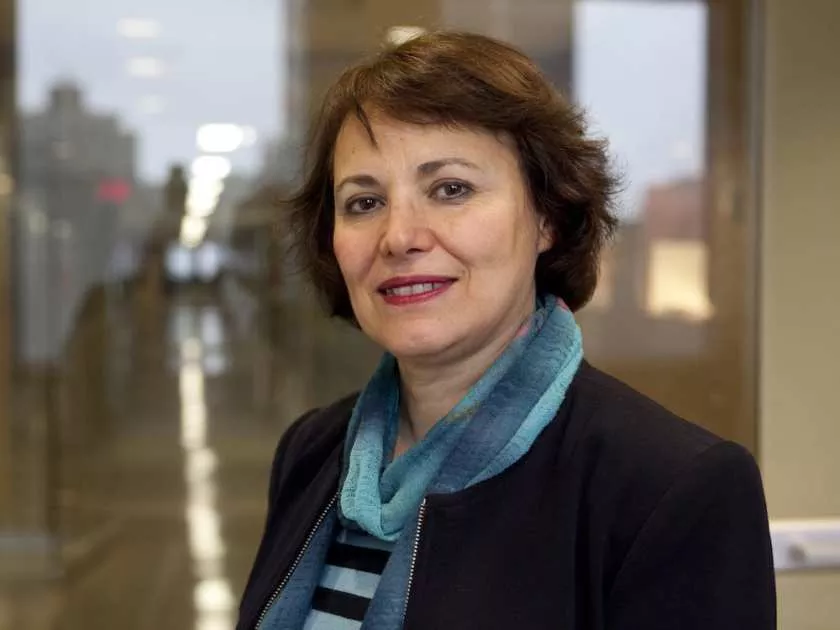After being held captive for 112 days, retired Concordia University Professor Homa Hoodfar was released from an Iranian prison on Sept. 26. Hoodfar, a Canadian-Iranian dual citizen, is a professor in the Department of Sociology and Anthropology with an interest in women’s roles in Muslim societies. She travelled to Iran to visit family and interview female politicians for her research. In March, she was arrested without clear charges, and subjugated to solitary confinement in Evin Prison, the political prison where Iranian-Canadian photographer Zahra Kazemi was raped and killed in 2003.
Concordia University held a press conference the morning of Hoodfar’s release. At the conference, Kimberley Manning, a Professor in Concordia’s Department of Political Science, expressed her appreciation for everyone involved in Hoodfar’s release.
“We […] are overjoyed today to learn that our colleague and friend has been freed, and is on the way to reunite with her family,” Manning said. “We are thankful not only to the academics and the media, but to the thousands of regular, ordinary people who signed petitions, wrote letters, attended rallies, and called for her release.”
Marc Lafrance, a professor in the Department of Sociology and Anthropology at Concordia, emphasized the importance of the academic community in securing her release.
“A lot of people call into question the relevance of the university in this day and age, but I think that one thing is clear, one thing that happened over the course of [the] event that made it special, unique and worthy of remembrance, is that academics all over the world came together to fight for the immediate and unconditional release of Homa Hoodfar,” Lafrance said.
Lafrance explained the efforts of himself and other Concordia professors, who have worked to help Hoodfar since her arrest in March.
“We started out working through private diplomatic channels, working in a very discrete manner as best we could,” said Lafrance. “It was a huge learning curve for all of us, we were all working a variety of different fronts whether it was keeping the story alive in the media, whether it was editing the press releases, whether it was translating statements, whether it was updating websites.”
Although the closure of Canada’s Iranian embassy several years prior limited diplomatic responses, Manning spoke highly of the Canadian government’s involvement both with Hoodfar’s family and her advocates.
“I became increasingly involved at the end of August, and at that time I was able to establish a direct contact with Global Affairs [Canada] as well,” Manning said. “They were very helpful in terms of giving us clear parameters around how we could bring attention to the issue without endangering [Hoodfar’s] life.”
Hoodfar’s condition and the specifics of her imprisonment remain unclear, but Concordia intends to release information as soon as it is available. Vrinda Narain is Associate Dean of the Faculty of Law at McGill and a friend of Hoodfar. She has been in contact with Hoodfar’s family and emphasizes that the exact details of the release have not been been publicly disclosed.
“The main point is that she’s been released on humanitarian grounds,” Narain said. “She’s left Iran and landed in Oman, one of the countries that helped secure her release, and I believe that she’s on her way to London now.”
As an organizer of the Free Homa Campaign, Narain insisted that the imprisonment had no legal basis. Iran kept Hoodfar in solitary confinement longer than allowed, ignored her rights to see her lawyer and her family, and imposed the controversial charge of “dabbling in feminism.”
“Apparently [Iranian authorities] are fearful of the idea of feminism or the idea of gender equality as a subversive concept,” Narain said. “The odd thing is that, [Hoodfar] has been promoting women’s equality, but she’s never really been a political activist in the sense that she’s never challenged the Islamic regime.”
Rex Brynen, a professor in the McGill Department of Political Science who specializes in Middle Eastern politics, is equally critical of the accusations.
“Homa Hoodfar is an outstanding scholar, and the apparent charges against her were ludicrous,” Brynen said. “Everyone is extremely pleased that Hoodfar has been released; it’s the kind of thing where you have no idea how long it might take or whether she would ever be released.”
Brynen commended the efforts the Canadian government along with the support of Italy, Switzerland, and Oman in pressuring for Hoodfar’s release.
“There is a statement from the Prime Minister’s office and some press reporting now on what Canada had been doing behind the scenes with other partners,” Brynen said. “How much of [the release] was external pressure, how much of it was internal politics, and how much of it was a combination of the two, we’ll probably never know.”
Brynen theorizes that Hoodfar was caught in the middle of a political conflict between Iranian conservatives and reformists, with the latter eventually winning.
“Iranian conservatives undoubtedly see feminism and Western-based researchers as a political and ideological threat,” Brynen said. “I don’t think [Hoodfar’s imprisonment] was aimed at Canada, but it was an attempt to embarrass reformers, discourage independent scholarship and attention to gender issues in Iran, and assert the authority of the conservative security services and judiciary.”
According to Brynen, Hoodfar’s case represents the dangers of research in authoritarian countries.
“The real problem is that scholars who are dual citizens are treated by their country of nationality as if they were local citizens, and are thus much more vulnerable to arrests,” Brynen said. “I think it’s something that McGill students, particularly McGill graduate students who may be undertaking research in dangerous areas, need to be aware of.”







